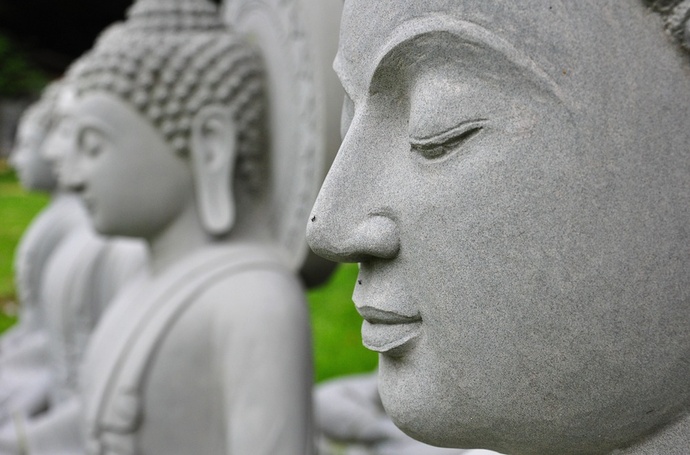Meditation is intended to bring peace and clarity to the people who practice it. For the anxious mind, though, meditation can often become a time to ruminate on negative thoughts. To overcome this meditation hurdle and actually leave feeling happier, a new Mindfulness journal study recommends starting with a loving-kindness practice.
Why loving-kindness meditations?
Loving-kindness meditations (LKM) stem from one of the four immeasurable meditations in Buddhism, along with compassion meditations (CM), appreciative joy meditations, and equanimity meditations. The overall goal of each practice is to elicit positivity toward self and others.

This study focused solely on compassion meditation and loving-kindness meditation in an attempt to distinguish the two similar techniques. “Despite being often overlapped and used interchangeably in academic literature, loving-kindness meditation and compassion meditation are also seen to have their distinct features,” the study writes.
In order to do this, the team studied the emotional impact of these practices on 201 university students—all of whom were new to meditation.
What did the research find?
One group of students listened to a 15-minute LKM audiotape, another listened to a 15-minute CM audiotape, and the control group solved a crossword puzzle. The participants were asked to evaluate their emotional states before and after their given assignments.
Compared to the puzzle group, both meditation groups showed an increase in happiness, a decrease in sadness, and felt more loving and caring toward others. However, LKM was significantly more effective than CM at evoking positive emotions.
“The higher effectiveness of loving-kindness meditation may be a sign that this type of meditation is more suitable to newcomers—those who have never tried meditation before,” study author Ulyana Sirotina said in a news release. “Compassion meditation is traditionally practiced after one has already mastered LKM.”

Bottom line
Those who are new to meditation, or tend to get lost in negative thoughts, may benefit from guided loving-kindness meditations, where they are led to envision others happy. More experienced meditators may also benefit from compassion meditations, where they focus on alleviating their own suffering and the suffering of others.
Originally Published: www.mindbodygreen.com



















